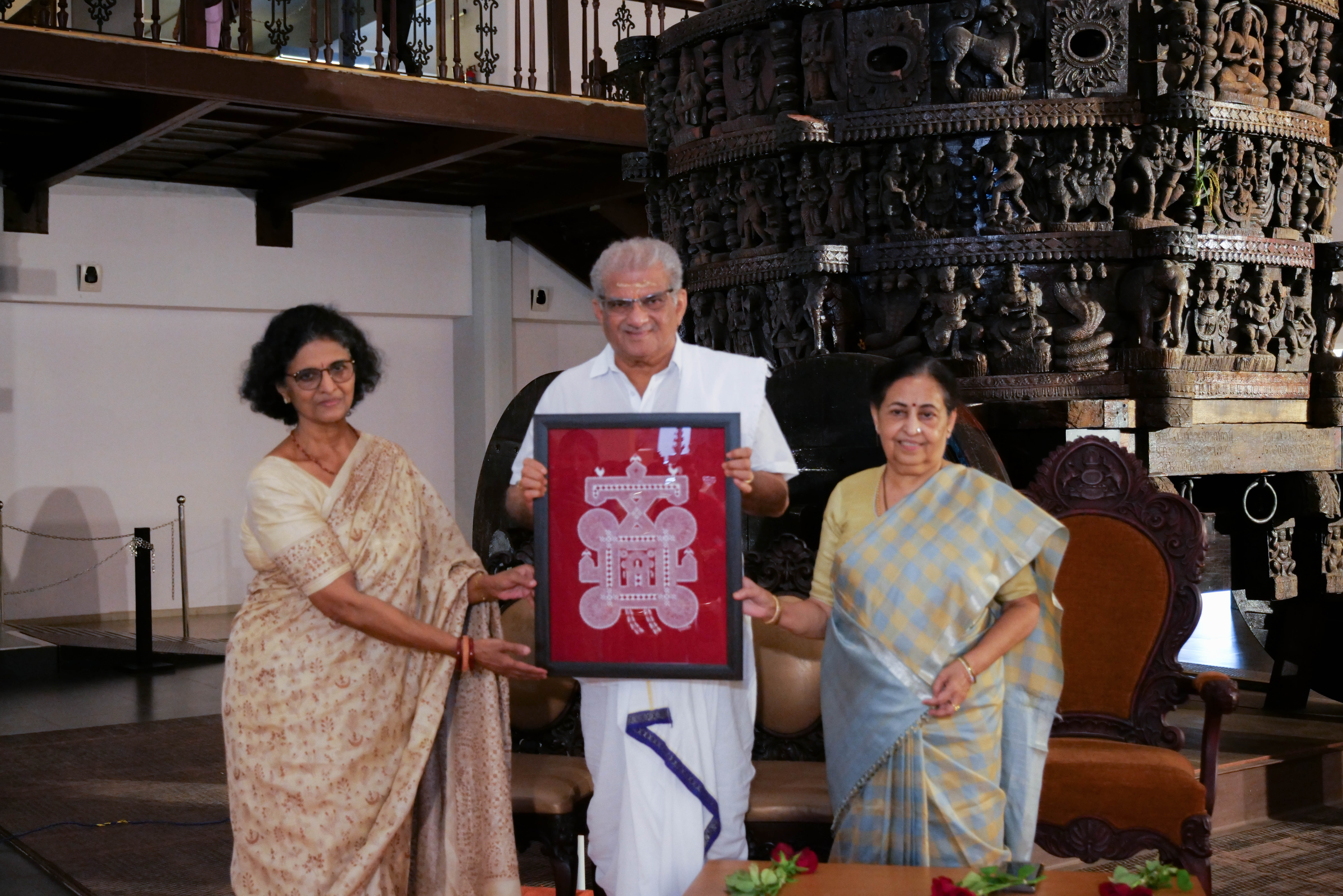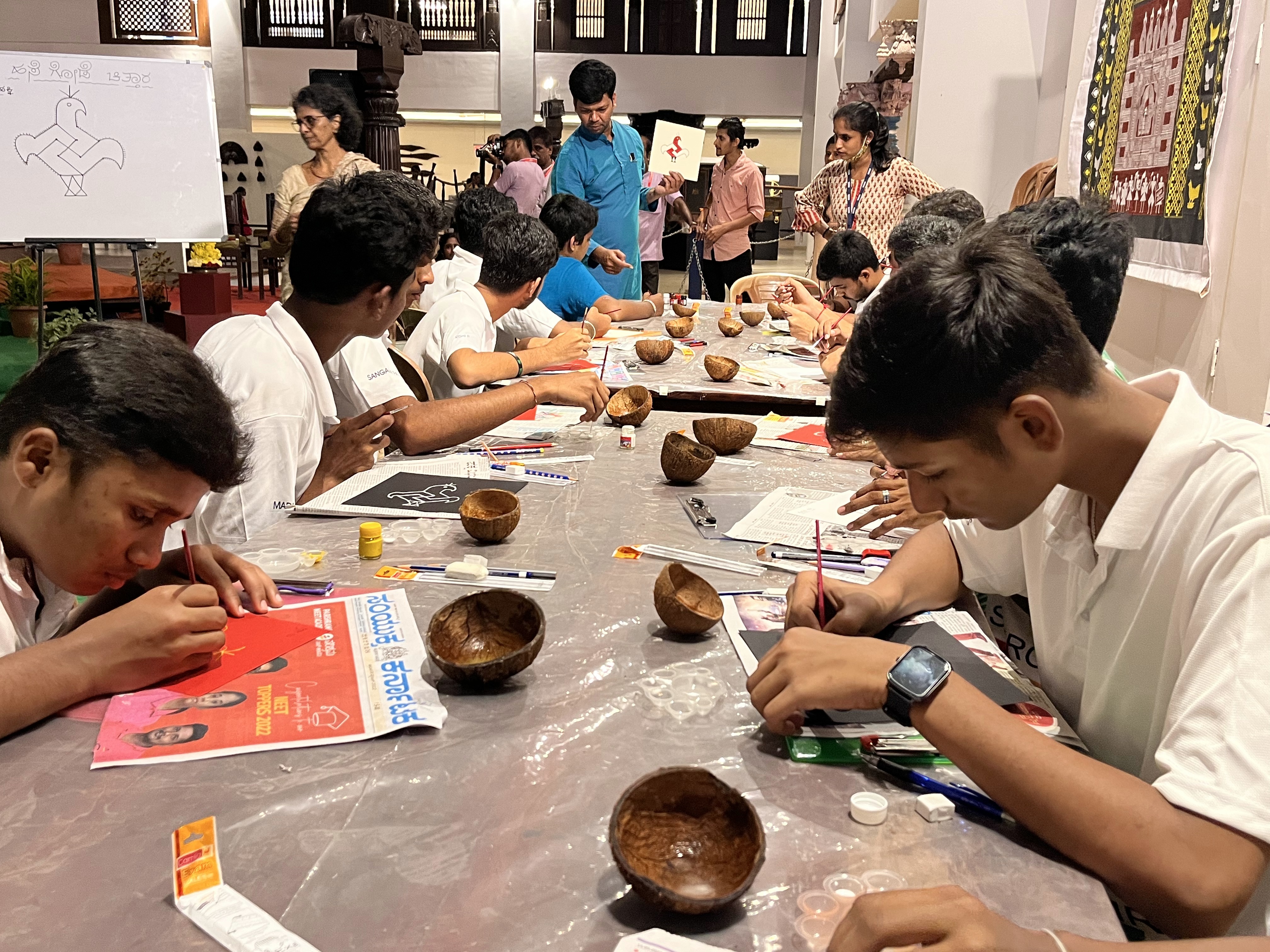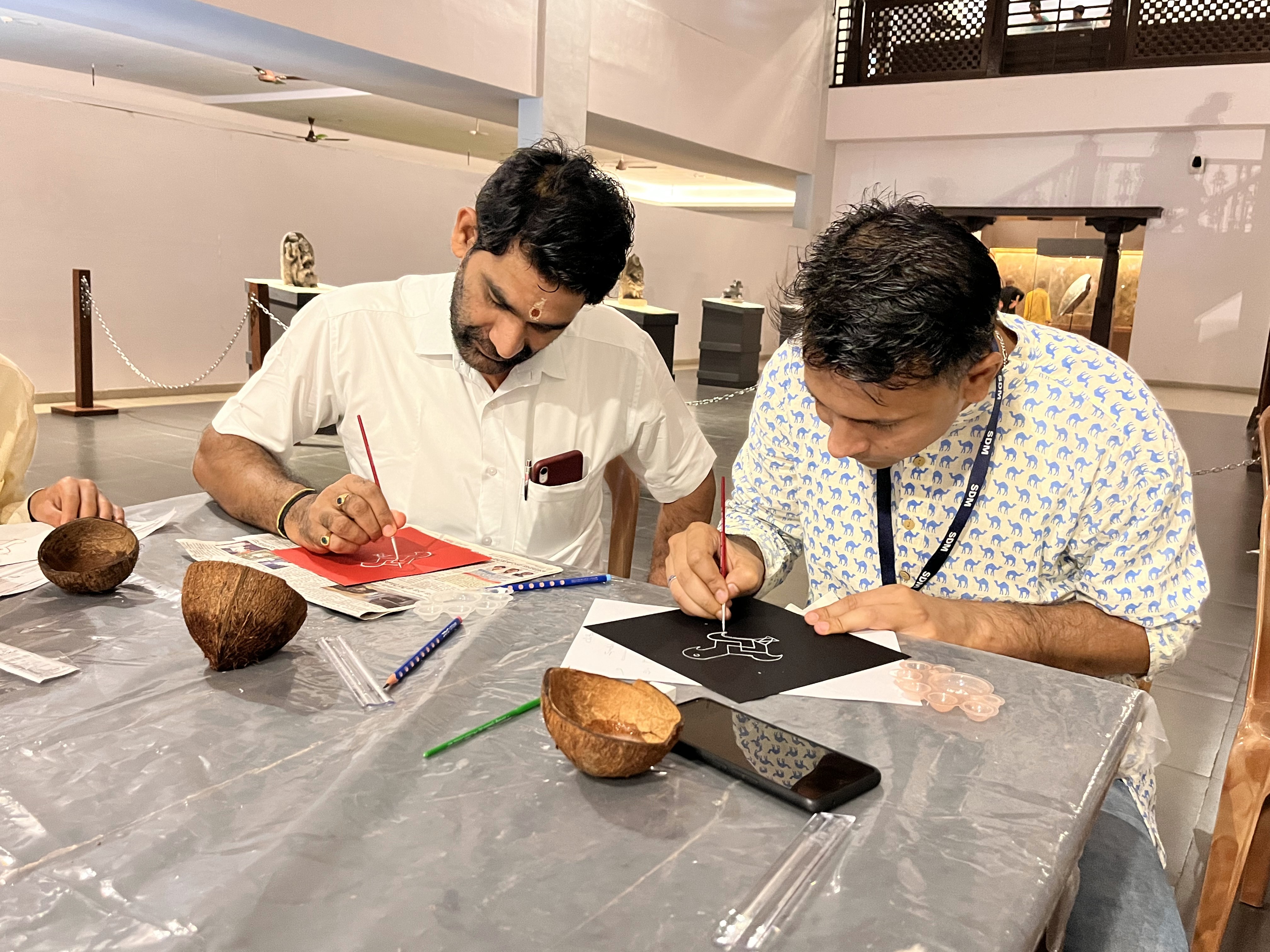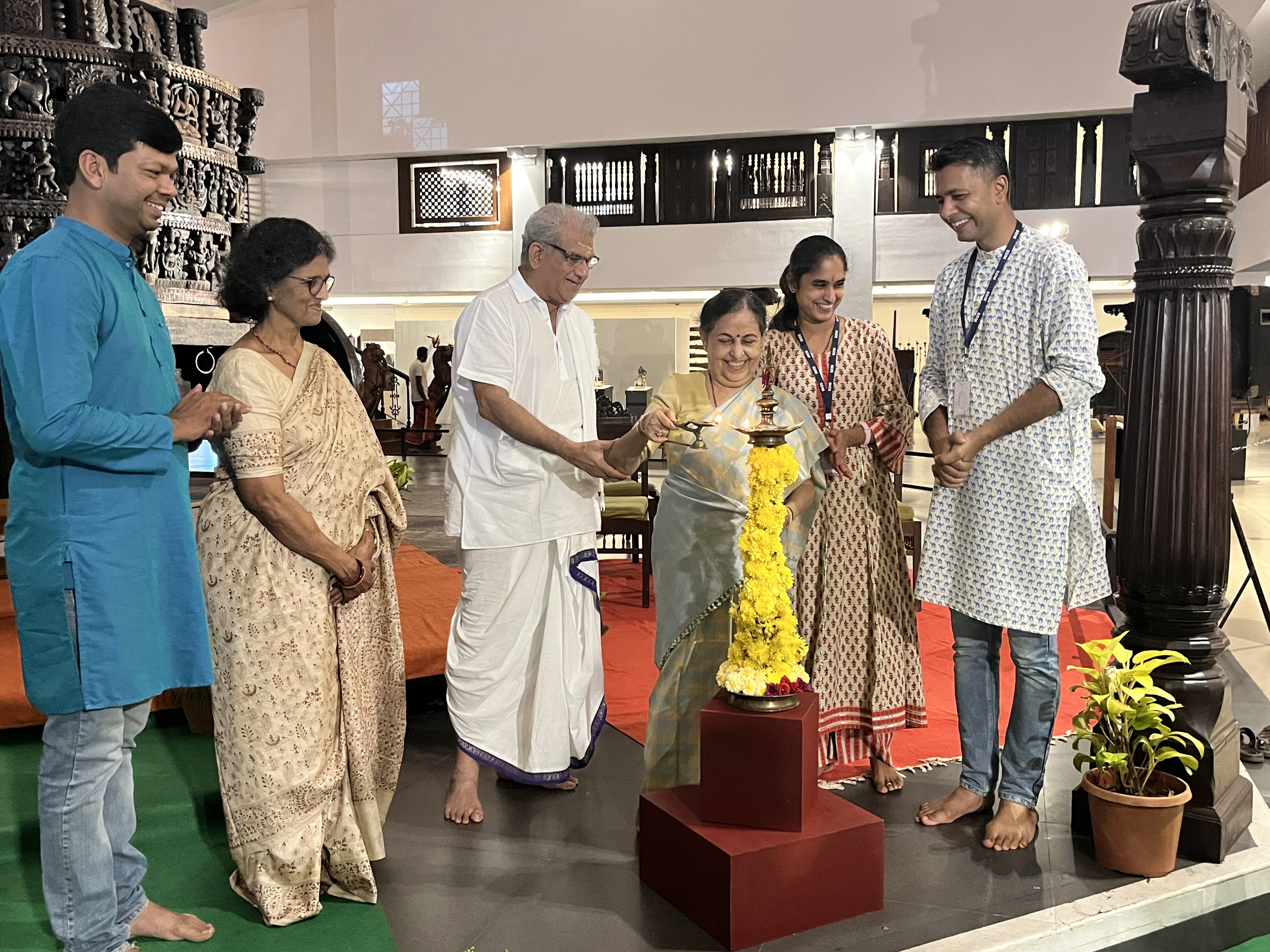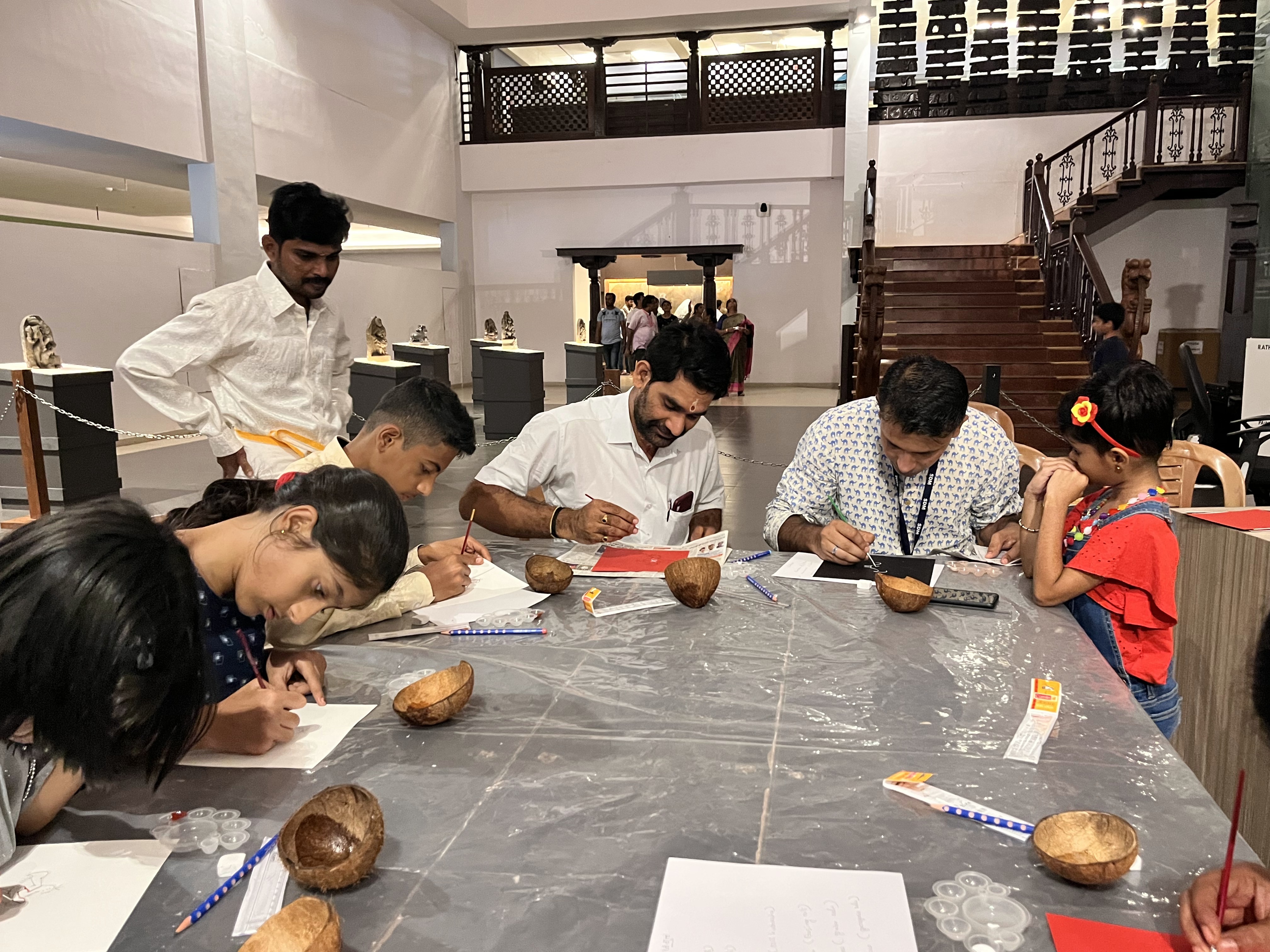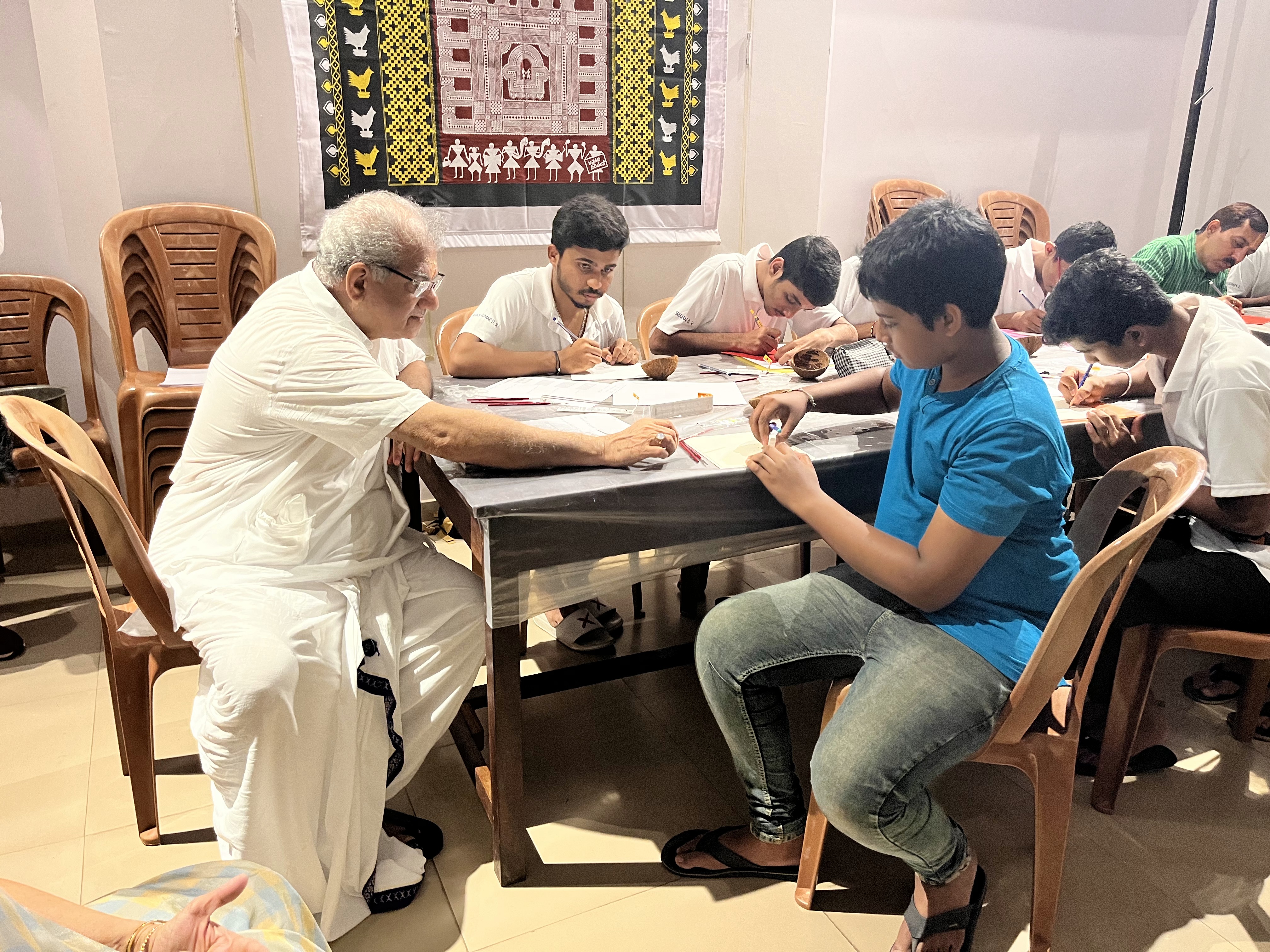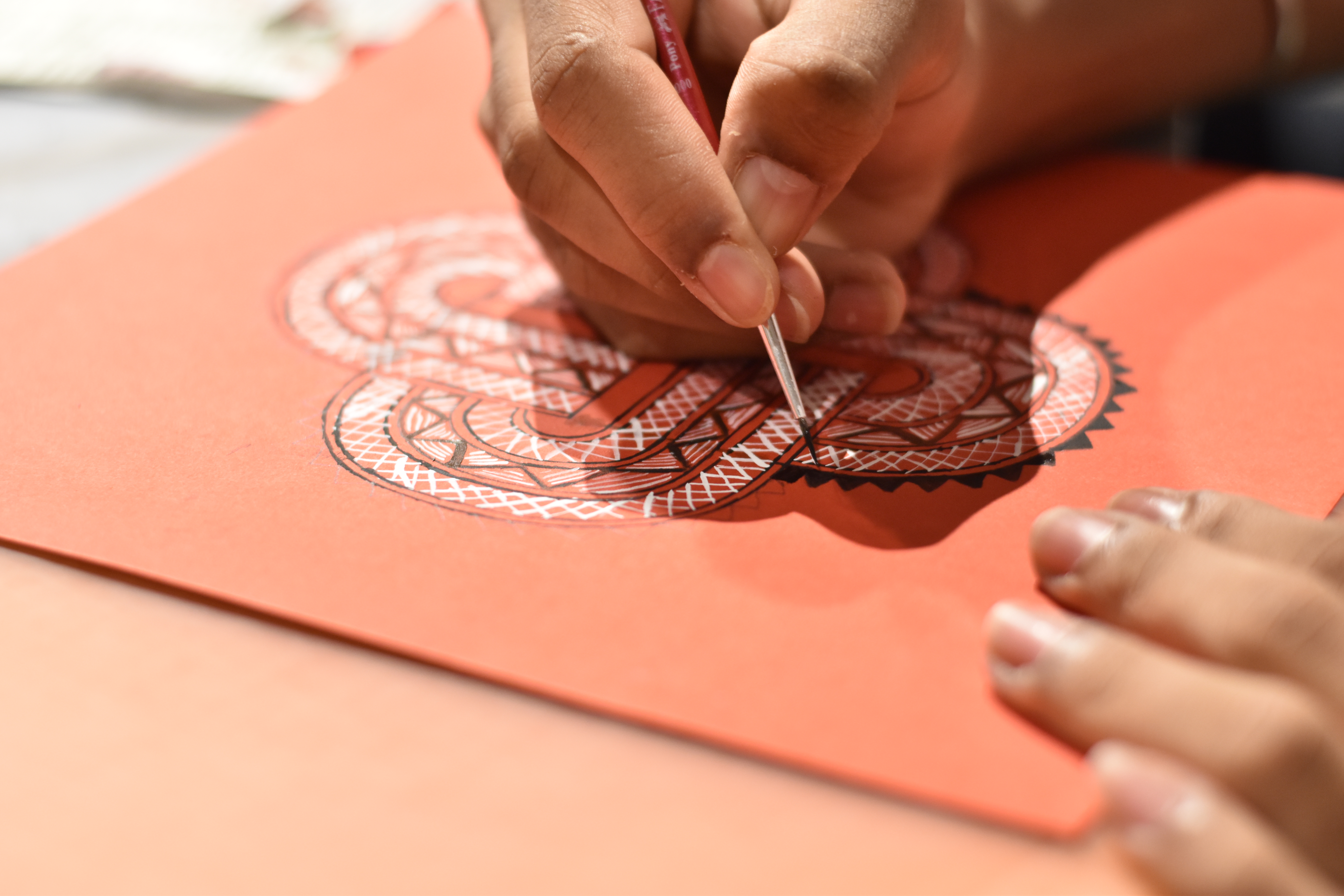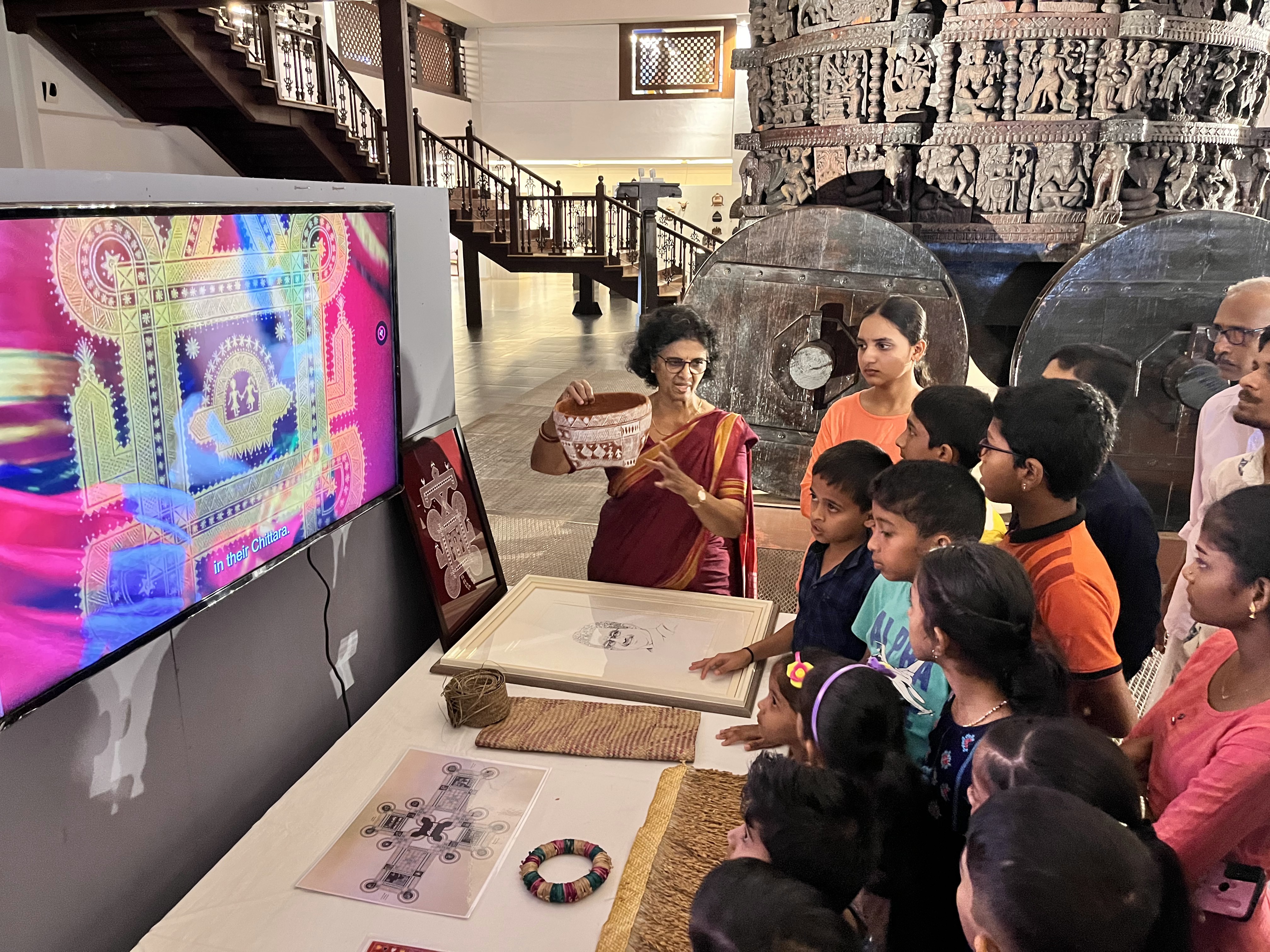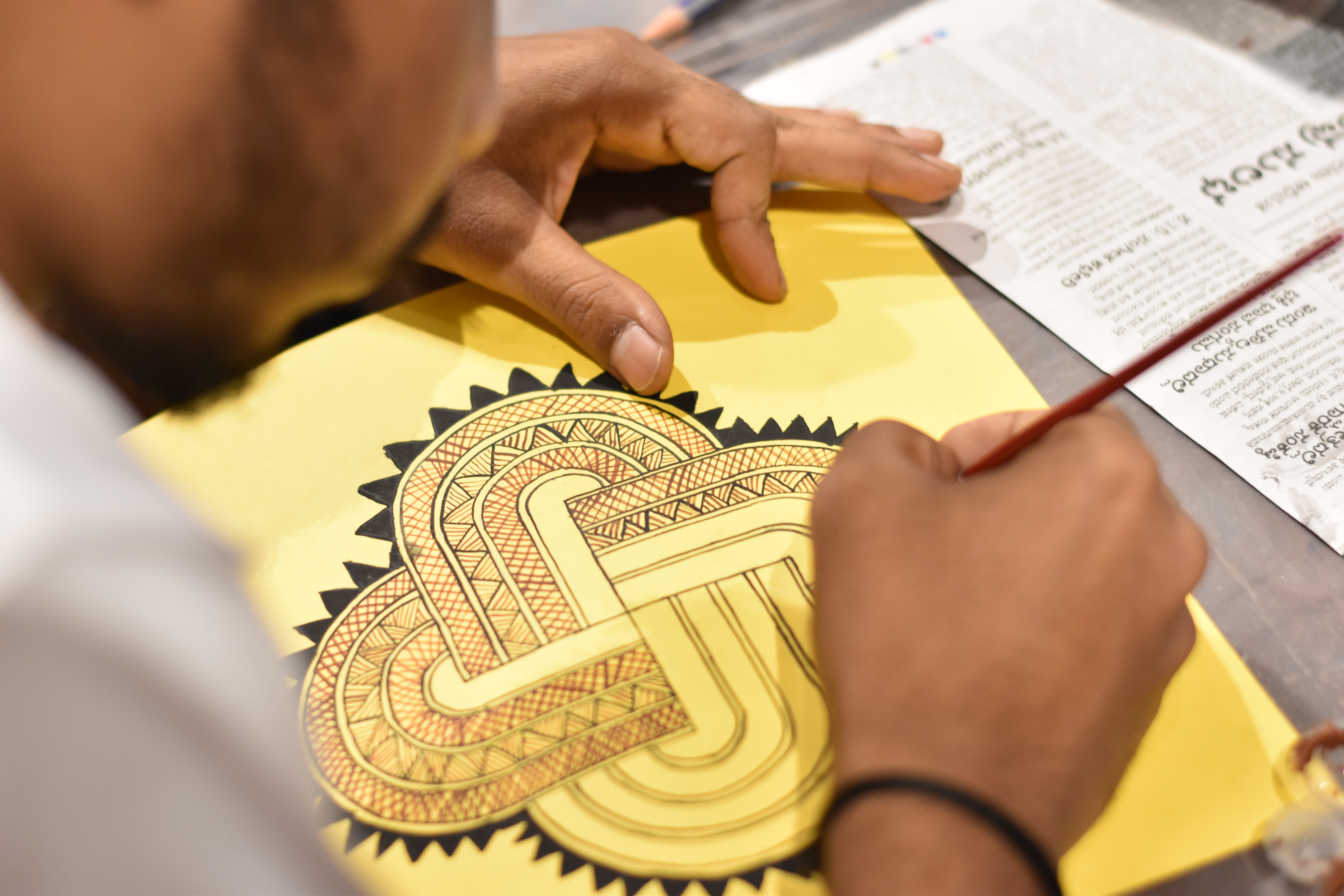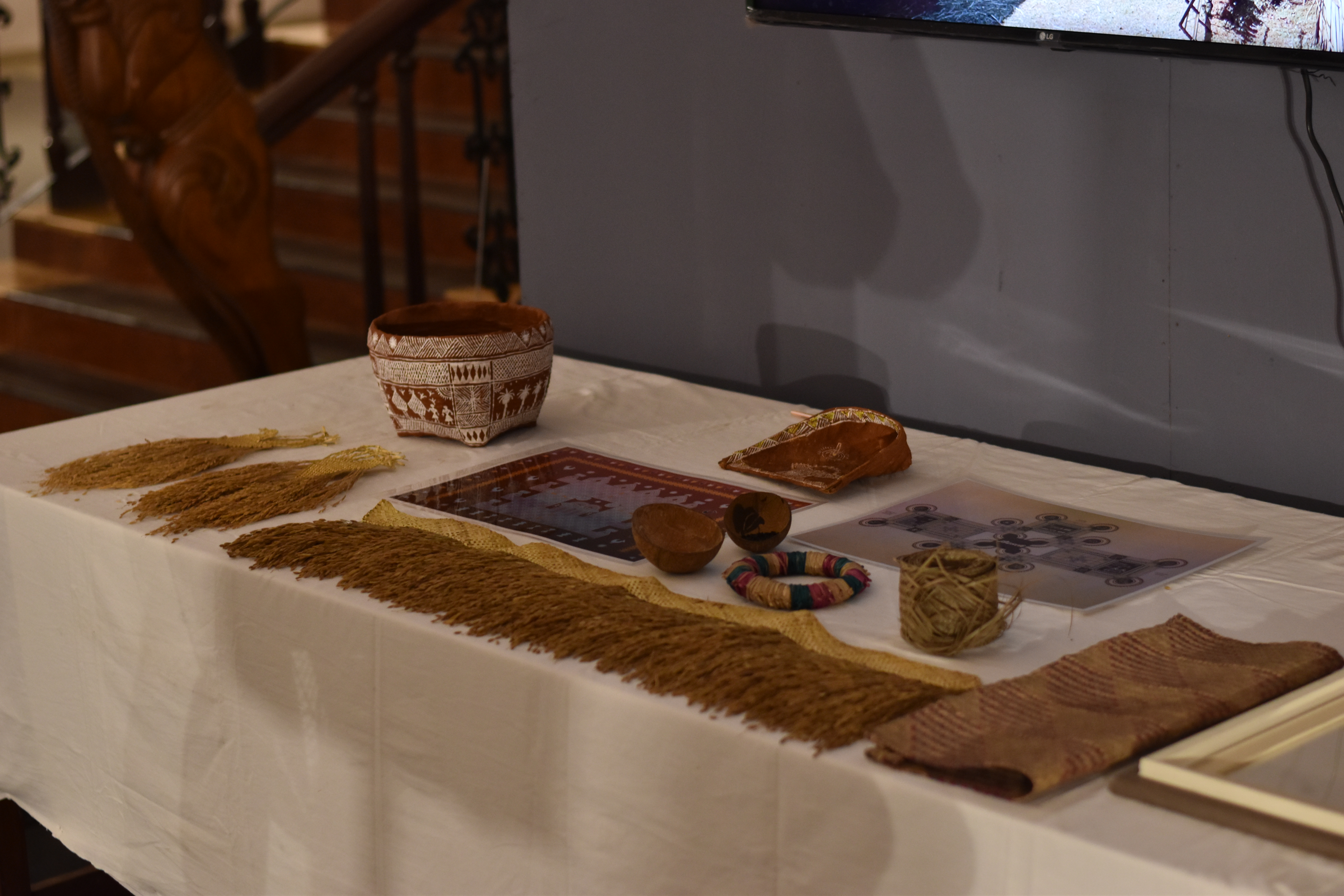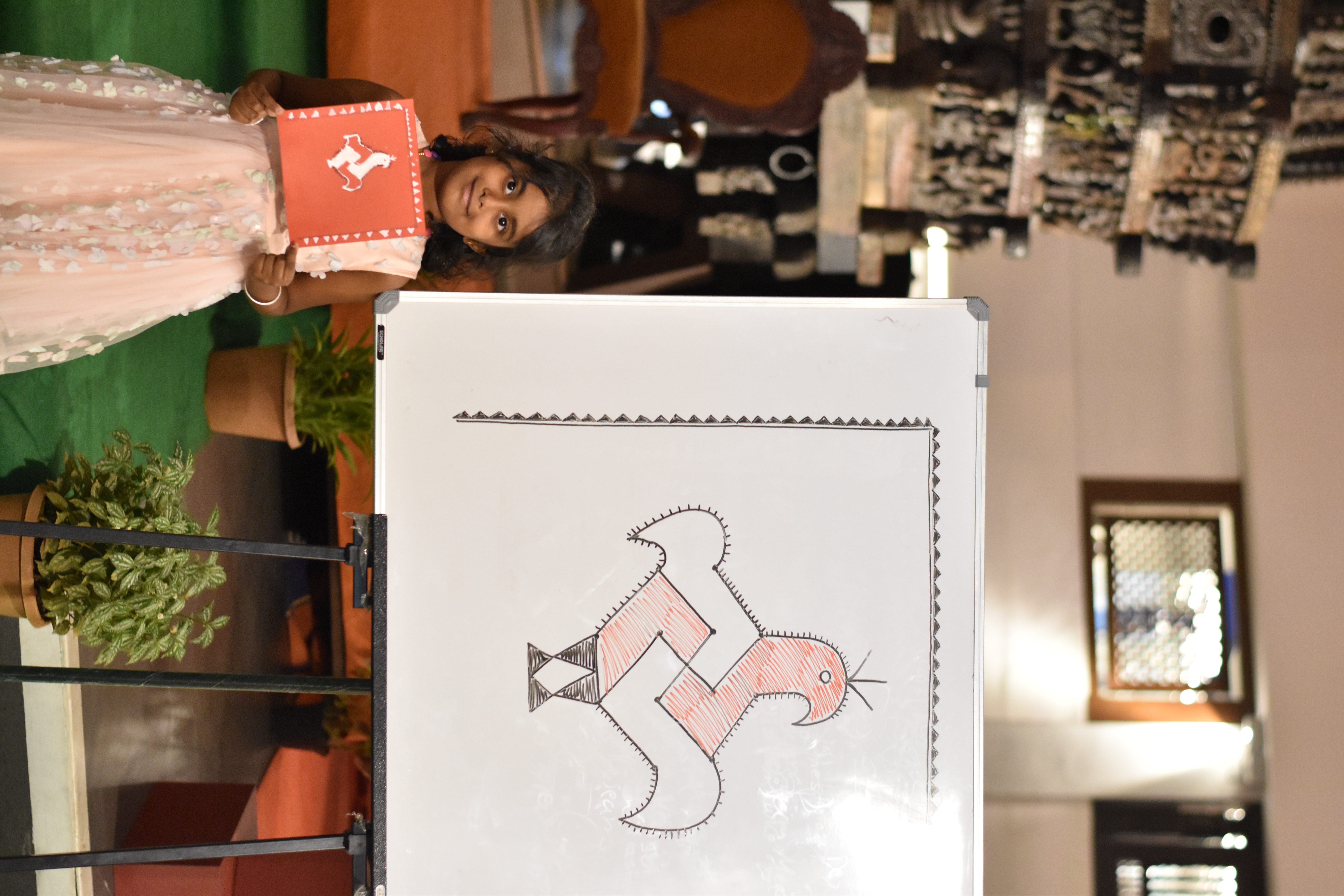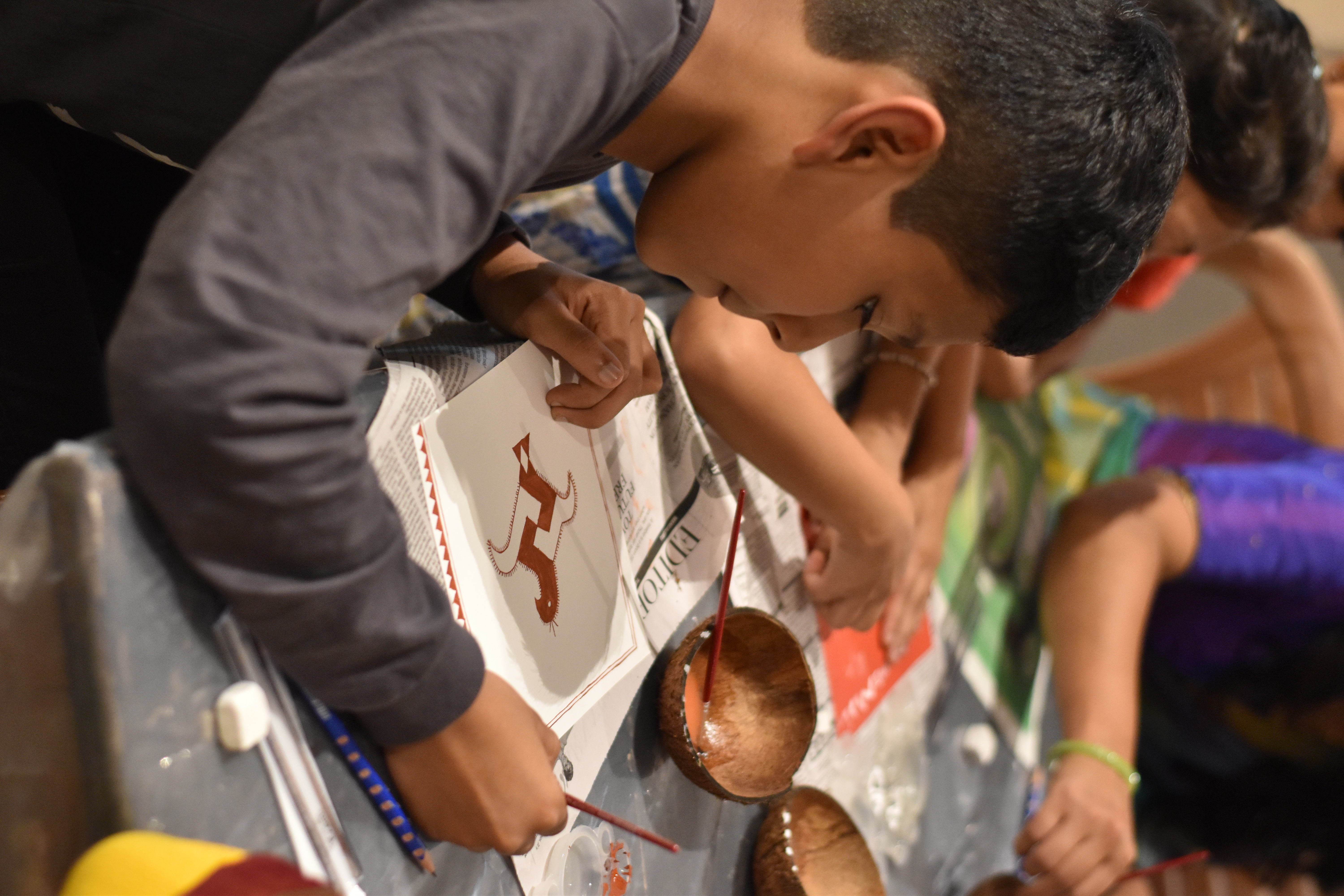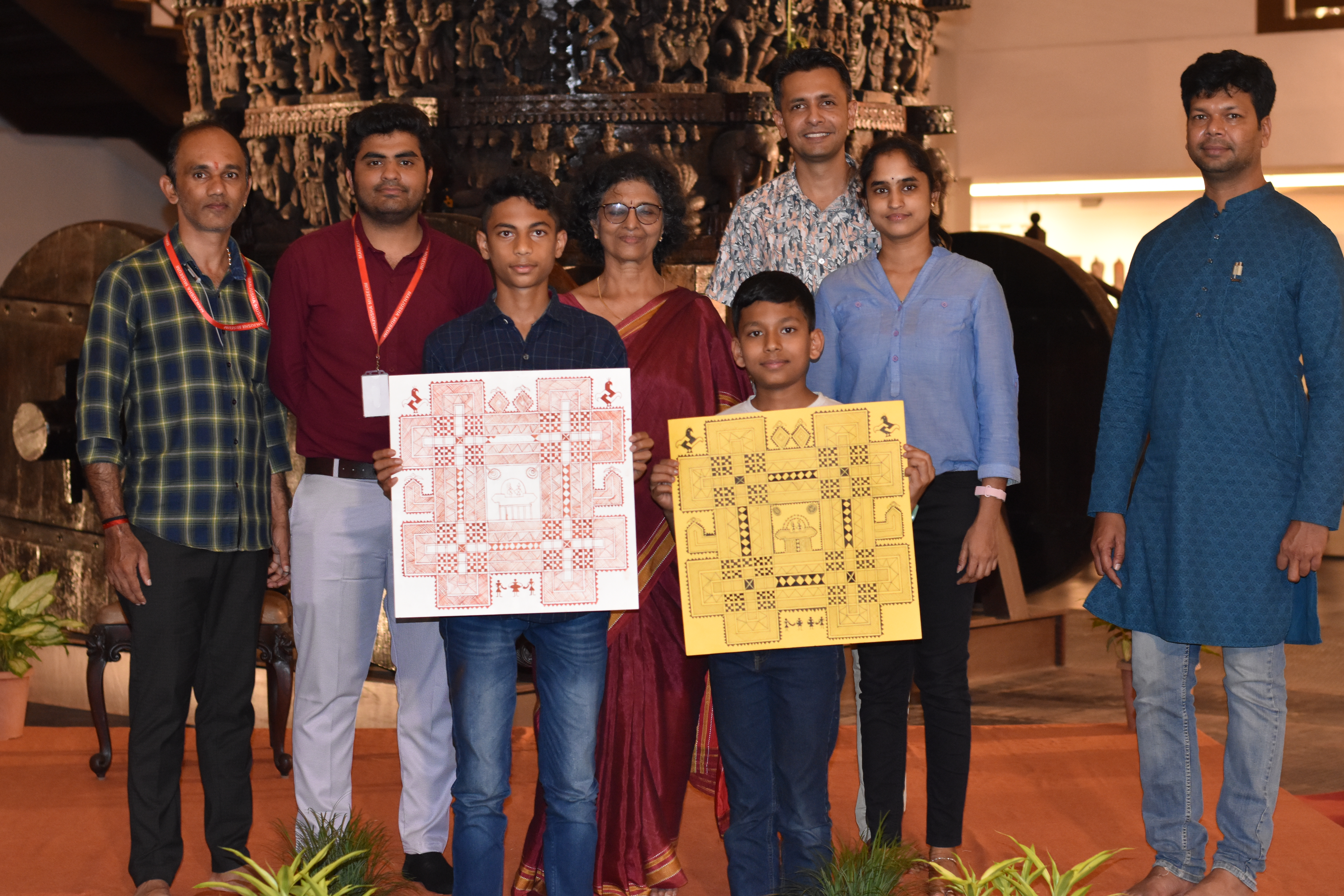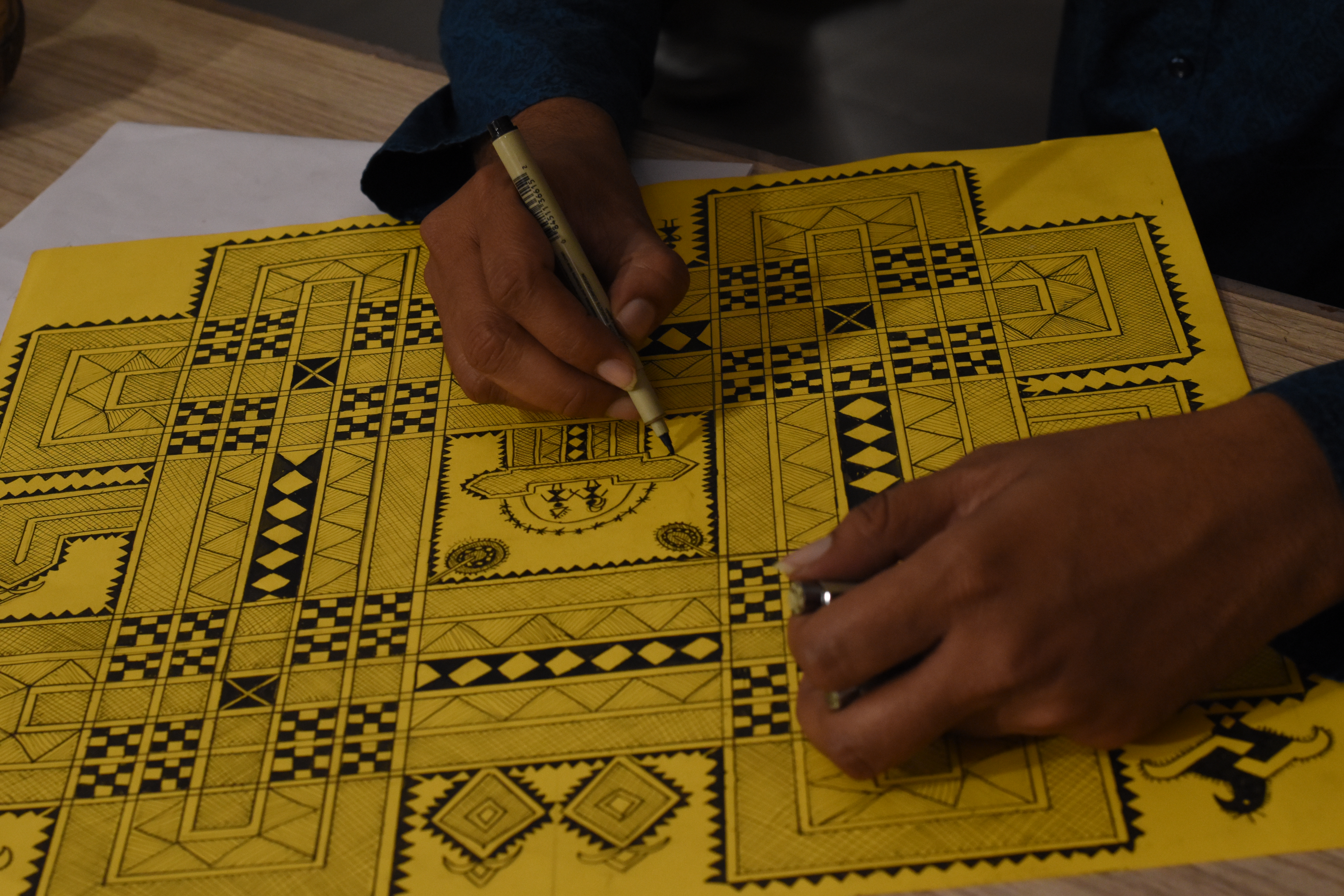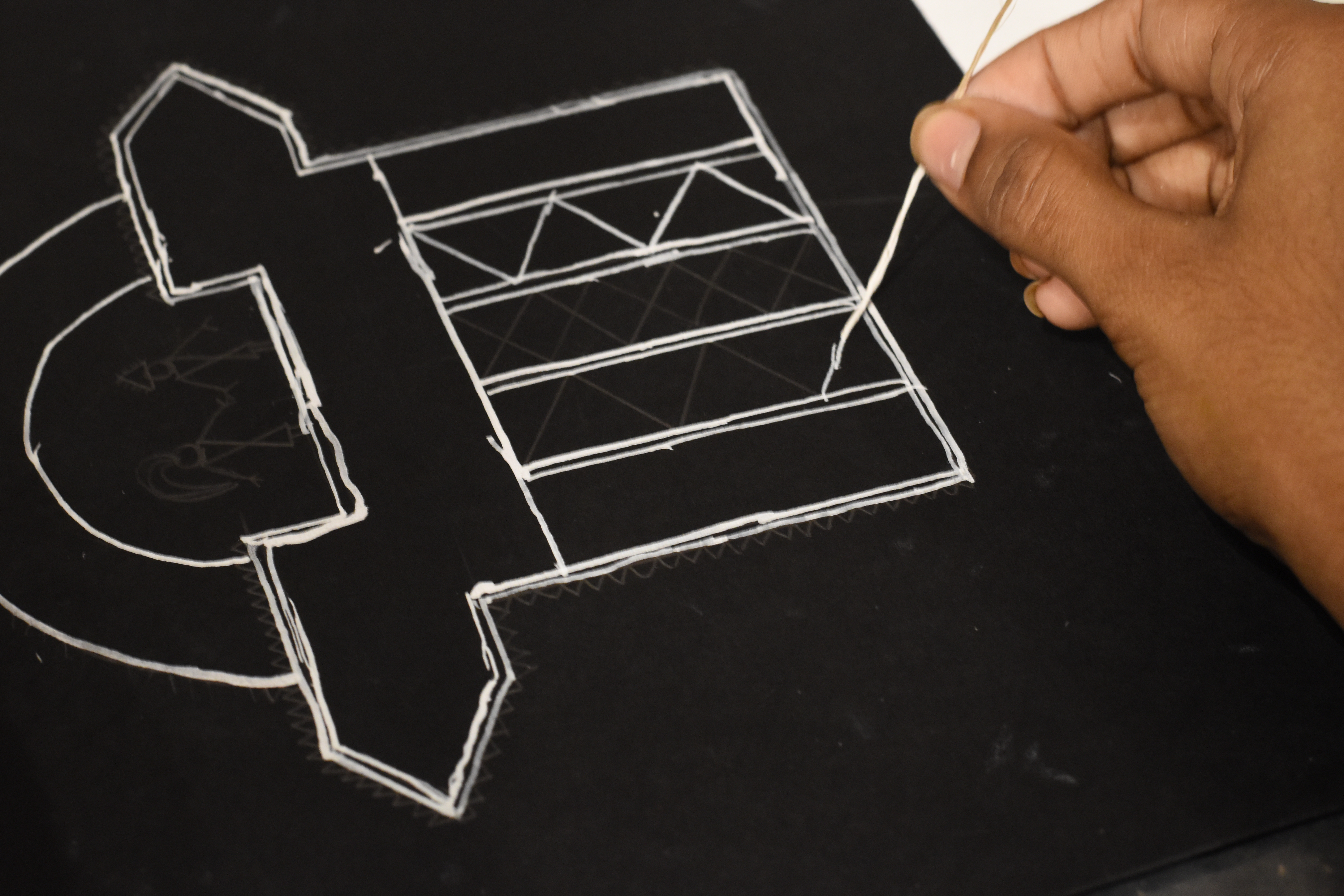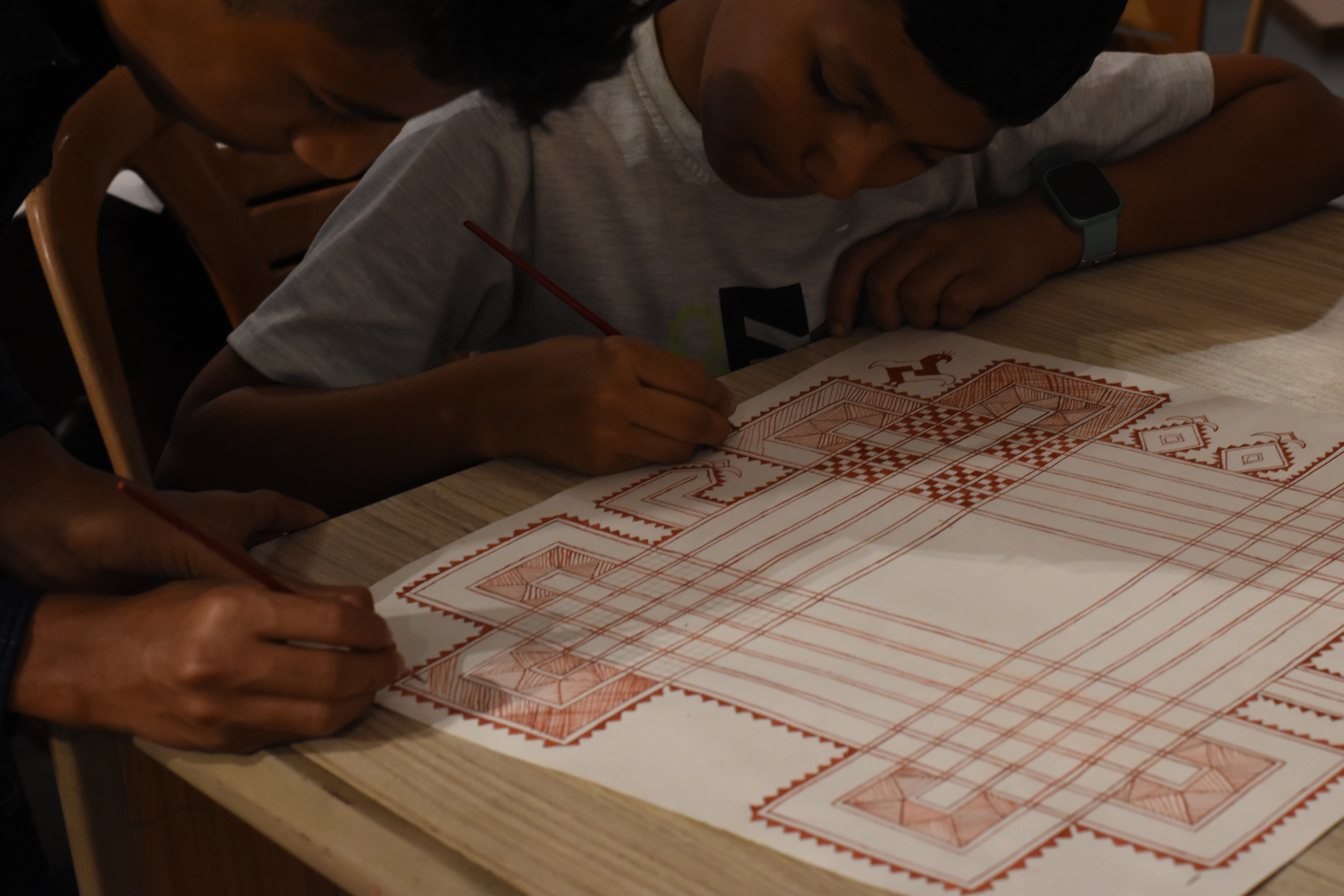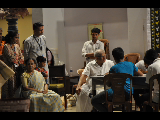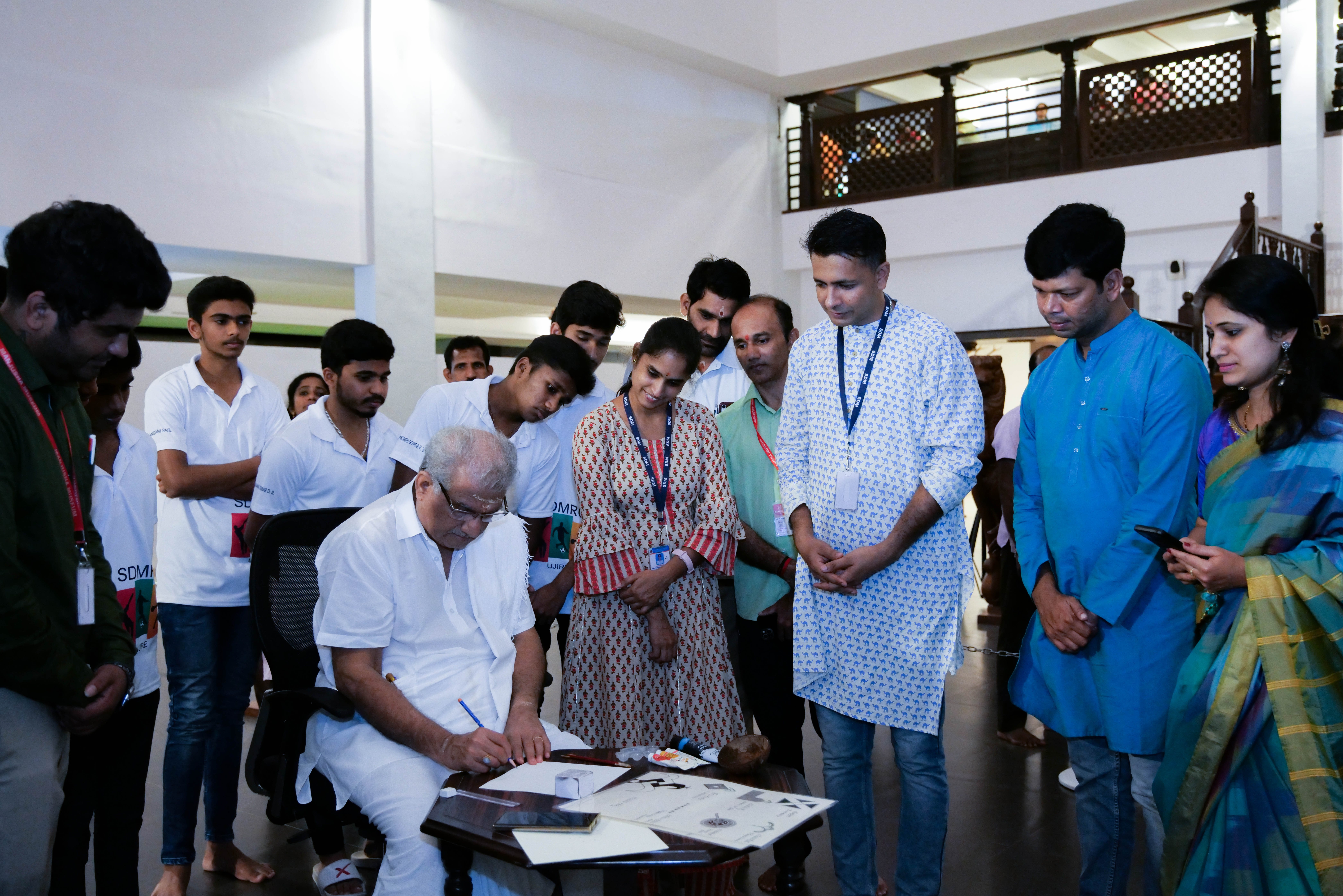
15 Oct Chittara
Reviving ‘Chittara’ – autochthonous art practice of Karnataka
Manjusha Antique Museum of Dharmasthala organised a two days workshop on ‘Chittara’, an art practice of the Deevaru community of Karnataka. In congruence to the objectives of Centre for Revival of Indigenous Art (CFRIA), the workshop revisited the lost art of Chittara and trained attendees to create this aesthetic and meaningful form of art.
Chittara artworks are intricate patterns that represent the auspicious ceremonies and rituals of life symbolised in geometric patterns. The art form is native to the Deevaru community of Karnataka. The art of creating them requires a certain understanding of ratios and proportions which the women of the Deevaru community have mastered with great perfection. This folk art was, and still is a part of their day-to-day life. Though they have never employed it as a profession, it holds great socio-cultural value within the Deevaru community as well as the heritage of Karnataka.
Chittara paintings are usually two to three feet in size, asthetically refined and made of distinct symbols representing the physical environment. They are created using eco-friendly natural resources such as grounded rice paste for white colour, roasted rice for black, yellow seeds and so on. The paint brushes are made up of ‘Pundi naaru’, which is kind of naturally occurring shrub. In every way, Chittara art forms constitute the very environment they were created in.
The women of the Deevaru community are incredibly
connected to this form of art and our proud of it. The art form makes them socially bonded and culturally integrated. Manjusha antique museum as a part of its educational initiatives organised a workshop where attendees were taught to create this art form in detail.
Manjusha Antique Museum at Dharmasthala organises many such educational activities where enthusias are welcome to revisit lost art forms and study them hands on. Workshops on Yakshagana costume, leather puppets, Ganjifa cards, clay pottery of Karnataka, video projectors, traditional masks of Tulunadu, conservation of metal, conservation of wood, disaster management in museums, traditions and ceremonies of Tulunadu and many more topics have been organised. Manjusha Museum welcomes students and heritage enthusiasts to freely participate in these workshops. All participants are provided necessary material to learn art forms taught at the workshop.
The museum located at Dharmasthala was inaugurated in 2018 and has an educational objective alongside conservation. The museum provides students and enthusiasts with hands-on experience of heritage conservation through its events. Everybody is welcome to partake in the unique educational approach.

